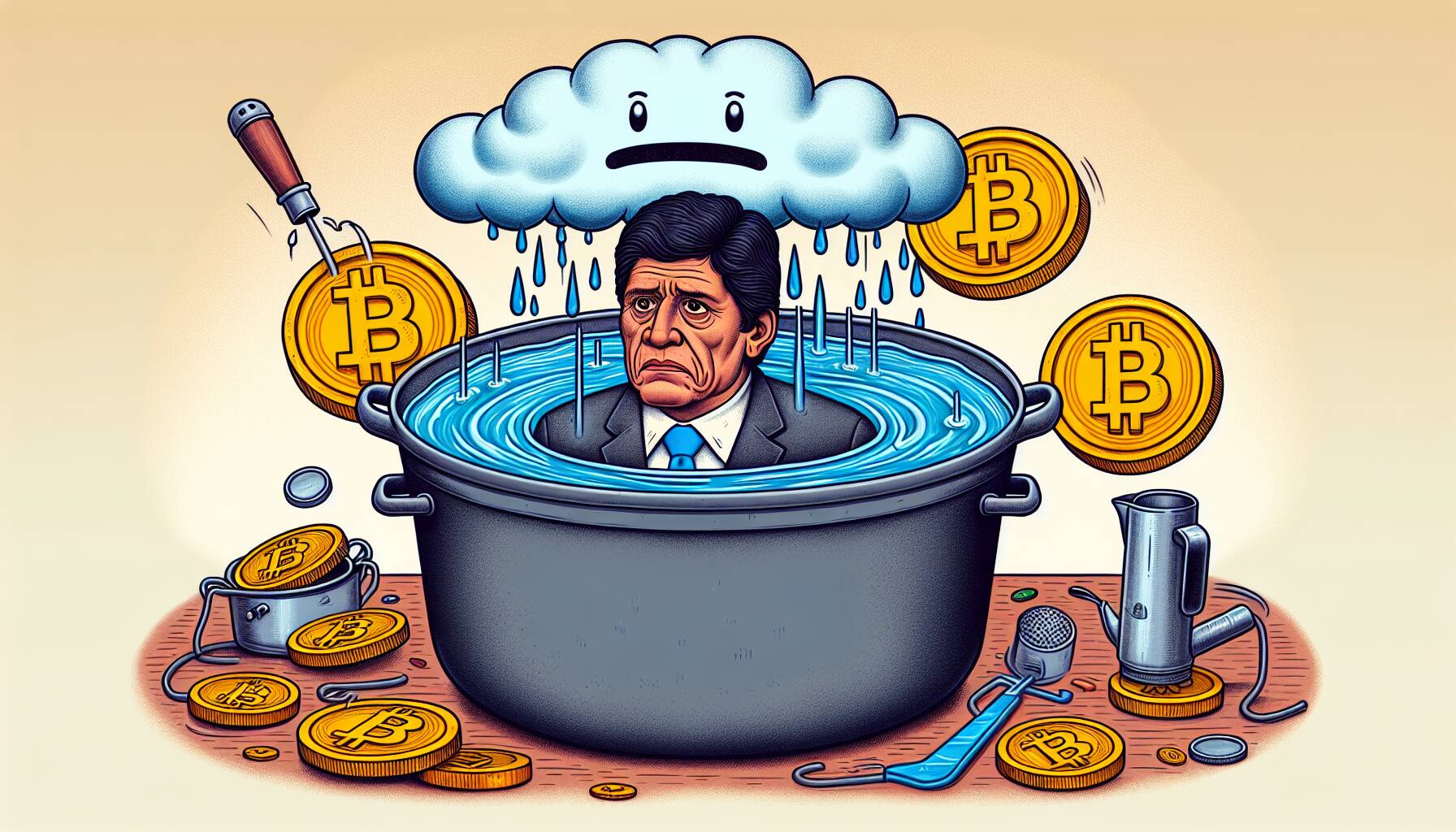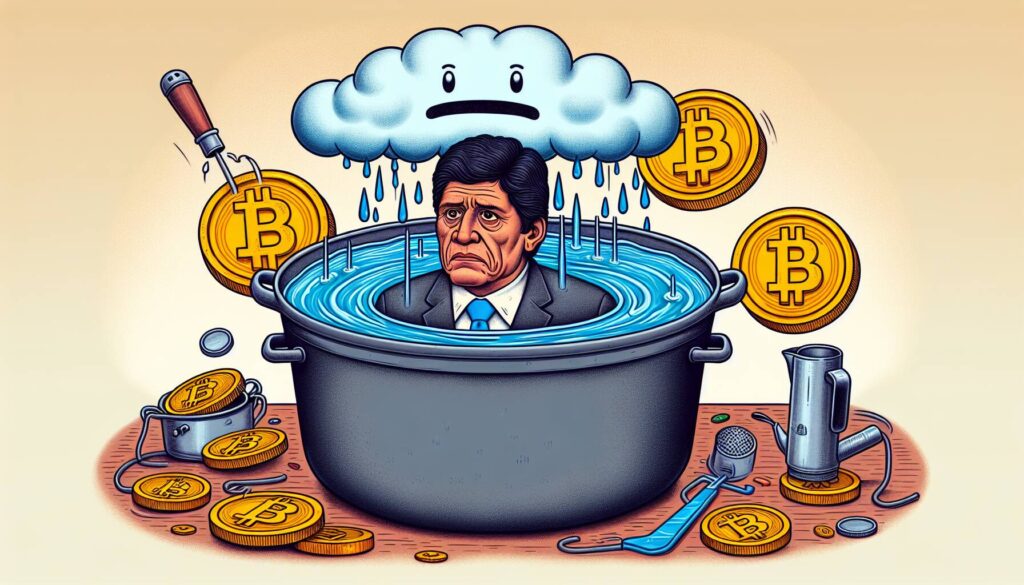In a significant political twist, Argentina’s President Javier Milei is now facing impeachment calls following his enthusiastic promotion of cryptocurrency. As digital currencies continue to shape economies worldwide, Milei’s fervor for promoting these assets has sparked a fierce debate among lawmakers and the public alike.
Critics argue that his actions could undermine the country’s traditional financial systems and bring instability to an already struggling economy. Supporters, however, see this as a bold move towards modernization and financial freedom in Argentina.
The unfolding situation has captivated both local and international media, as the nation grapples with the implications of cryptocurrency in governance and economic strategy.
As Argentina navigates this turbulent political landscape, the outcome of the impeachment discussions could have lasting effects on the country’s financial future and its approach to emerging technologies.

Argentina’s President Milei Faces Impeachment Calls
Argentina’s political climate is shifting as President Javier Milei has sparked controversy through his promotion of cryptocurrency. This situation could have significant implications for both the country and its citizens.
- Impeachment Calls: The rising demand for impeachment signifies a deepening political crisis and growing opposition to the president’s policies.
- Cryptocurrency Promotion: Milei’s backing of cryptocurrency may reshape Argentina’s economy, potentially impacting inflation, investments, and financial stability.
- Public Response: The citizen’s perception of Milei’s actions can influence public support, potentially affecting his ability to govern effectively.
- Global Economic Relevance: As Argentina navigates these changes, the international community may closely watch how cryptocurrency regulation unfolds, impacting global market trends.
- Potential Economic Effects: Shifts in cryptocurrency use could lead to changes in economic practices, affecting everyday transactions and the savings of Argentine citizens.
Impact on Daily Life: The political and economic outcomes of these developments could alter how Argentinians manage their finances and interact with global markets.
Argentina’s Rising Political Storm: President Milei and Cryptocurrency Controversies
In a dramatic turn of events, Argentina finds itself engulfed in political turmoil as President Javier Milei faces potential impeachment following his enthusiastic endorsement of cryptocurrency. This situation mirrors global trends where leaders embrace digital currencies, yet Milei’s approach has sparked intense debate about governance and financial stability in a country grappling with economic challenges.
From a comparative standpoint, Milei’s promotion of cryptocurrency stands in stark contrast to other nations that have adopted a more cautious stance or outright restrictions on digital currencies. For instance, countries like China have implemented stringent regulations to curb cryptocurrency trading and mining, citing concerns over financial stability and fraud. This has allowed them to maintain tighter control over their financial systems, avoiding the volatility associated with cryptocurrencies.
The competitive advantage for Milei lies in attracting tech-savvy investors and positioning Argentina as a forward-thinking economy despite ongoing issues like inflation and debt. This digital-forward vision could foster innovation and bring much-needed investment into the country. However, this strategy carries significant risks. Critics argue it could expose the economy to greater volatility, especially for a nation that is already wrestling with economic crises. The allure of cryptocurrency could further destabilize the monetary system, as it may lead citizens to trust digital assets over the national currency.
For Argentine citizens, particularly the younger population eager for modern financial solutions, Milei’s advocacy may represent hope for a more inclusive and technologically advanced financial system. However, the impeachment calls reflect a growing concern among traditionalists and economic conservatives who fear that such radical moves could worsen the country’s economic plight. This conflict reveals a deep ideological divide that could either rally the youth around Milei’s vision or alienate the conservative sector of the population, complicating governance further.
Internationally, Milei’s approach could provide a template for other emerging markets considering similar paths. However, his current predicament may also serve as a cautionary tale for leaders who overlook the intricate balance between innovation and stability. As countries worldwide navigate this digital revolution, the Argentine case exemplifies the risks of rapid financial reform against a backdrop of political instability.
In the end, President Milei’s foray into cryptocurrency could benefit the tech-driven sectors of the economy, appealing particularly to the millennial and Gen Z demographics that are more likely to embrace digital assets. However, it has the potential to spark significant unease within traditional economic circles, leading to polarized public opinion and possible political repercussions. Thus, while trending towards the future, Milei’s administration must tread carefully to avoid deeper rifts in an already fragile economic landscape.

















